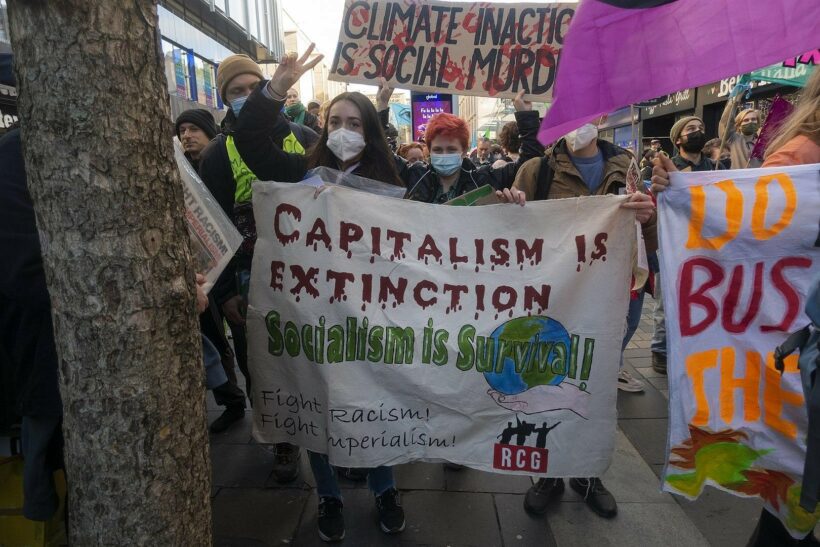Organizers of a global petition under the banner “COP Civic Space,” which highlights the tens of thousands of political prisoners held by Egypt, have called for November 10 to be a Global Day of Solidarity. Egypt, which is currently hosting the COP27 UN climate conference in Sharm el-Sheikh, has imprisoned many protestors over the past nine years, including many who have called for climate action.
In the petition signed by hundreds of organisations around the world including 350.org, Amnesty International, Fridays for Future, and many more, organizers call for the rights of people to freedom of expression, association, and peaceful assembly. The authors write, “We emphasize that effective climate action is not possible without open civic space.”
There is a glaring lack of civil society protest at COP27, in stark contrast to the vibrant and robust presence of climate activists at COP26 in Glasgow last year. As more and more people around the world wake up to the severity of the climate crisis and the failure of international negotiators to take meaningful action, the silence on the sidewalks surrounding Egypt’s Tonino Lamborghini Convention Center and on the main streets of Sharm el-Sheikh is deafening.
Four days into COP27, Eyal Weintraub, Co-founder of Youth for Climate Argentina, said, “I haven’t seen a single protest outside of the gates, and only limited protest in ‘permitted’ areas inside the Blue Zone.” The Blue Zone is the area where official governmental negotiations are taking place.
The inability of individuals — both Egyptians and those from other countries — to peacefully protest outside of narrowly defined dedicated protest zones contradicts the freedoms that the United Nations is supposed to stand for and uphold. However, the petition signers’ concerns extend far beyond the two weeks of the COP27 conference.
“We also call on Egypt to end the prosecutions of civil society activists and organizations and guarantee space for civil society—including human rights defenders—to work without fear of intimidation, harassment, arrest, detention, or any other form of reprisal, including by releasing of unjustly jailed human rights defenders, lifting arbitrarily travel bans and asset freezes and closing all politically-motivated cases against activists targeted for their human rights work.”
One of the civil society organisations leading the petition is the Association for Freedom of Thought and Expression (AFTE). Mohamed Abdel Salam, Executive Director of AFTE, said, “The main needed step to reach climate justice is to stop all repressive policies and respect human rights. Egyptian citizens don’t have any chance to get knowledge regarding the effects of climate change and the Egyptian authorities don’t guarantee their fundamental rights to face these effects and raise their demands. That’s a result of many repressive policies such as the security control of media outlets, restricting civil society activities, freezing the issuance of access to information law and declining independence of the judiciary.”
The human rights situation in the United Arab Emirates, host of next year’s UN climate conference (COP28) is also problematic. According to Amnesty International, “The [UAE] government continued to commit serious human rights violations, including arbitrary detention, cruel and inhuman treatment of detainees, suppression of freedom of expression, and violation of the right to privacy.”
Hosting a UN climate conference represents a significant commitment by the host country and holds the potential to lead to meaningful international progress on the climate crisis. However, as Yasmin Omar of Committee for Justice says, “Addressing the environmental crises can not be utilized to greenwash the reputation of one of the worst abusers of human rights in the world. The world’s solidarity with our demands created a unique momentum to center human rights in vital discussions during COP27 and to call on Egypt to take concrete steps to release rights detainees and open up civic space.”






